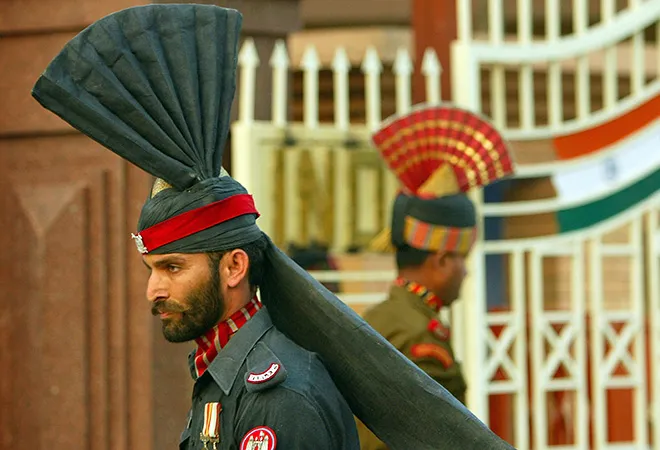-
CENTRES
Progammes & Centres
Location
India’s multi-pronged strategy of using various instrumentalities of power — legal, diplomatic, economic and military — seems to have had some effect in shaping Pakistan’s behaviour.

Pakistan is under pressure and it’s showing. Last week, it agreed to many of Indian demands pertaining to the Kartarpur corridor negotiations, including the construction of a bridge on the corridor’s ‘zero line’ that will allow 5,000 Indian passport-holding pilgrims to trave visa-free every day.
This week, Pakistan also reopened its airspace to Indian planes after almost six months. This was followed by Pakistan’s Punjab province registering FIRs against Hafiz Saeed and his accomplices in 23 cases related to terror financing and money laundering.
That Pakistan is hurting because of its global isolation came into full view most clearly when on Wednesday, the International Court of Justice (ICJ) at The Hague ruled in favour of India in the case of former Indian naval officer Kulbhushan Jadhav’s trial in Pakistan for espionage and terrorism charges.
ICJ ruled that Pakistan had violated international law, exposing how its disregard to basic legal norms makes Pakistan a global outlier.
The 16-member ICJ bench — with only the dissenting voice of ad-hoc judge, Tassaduq Hussain Jillani, a former chief justice of Pakistan — decisively ruled against the death sentence awarded to Jadhav by a Pakistani military court. ICJ also demanded that Pakistan not only grant Jadhav consular access, a right he had been denied so far in violation of the 1963 Vienna Convention, but that his death sentence be reviewed.
While the ICJ decisions are nonbinding, they do showcase world opinion. New Delhi’s decision to take the matter to ICJ was earlier ridiculed by many at home. But the strategy was quite clear: to put the spotlight on Pakistan’s frayed domestic institutional fabric. By reinforcing Pakistan’s ‘rogue’ credentials, it has put Pakistan’s leadership in the dock.
Pakistan, of course, has put on a brave face. Pakistani Prime Minister Imran Khan tweeted that he appreciated the world court’s decision “not to acquit, release and return Jadhav to India” and that Pakistan would proceed further as per law. But the impact of ICJ’s verdict would not be lost on a nation already reeling from multiple crises.
According to some sources, Islamabad is reportedly exploring third-country diplomatic assistance to manage the Jadhav affair. According to this unconfirmed information, Pakistan is planning to even ‘do a deal’ with India whereby Jadhav is sent home in return for an official admission from New Delhi that he was indeed a spy.
This is a trope Pakistan had tried to use even in 2017 to no effect, as India saw through Pakistan’s game plan and it is unlikely to work even now.
ICJ’s verdict also comes at a time when Khan heads to the US for his first meeting with President Donald Trump, as a precursor to try ending Islamabad’s wider global isolation.
India’s multi-pronged strategy of using various instrumentalities of power — legal, diplomatic, economic and military — seems to have had some effect in shaping Pakistan’s behaviour.
The Narendra Modi government, in its first term, had faced much flak for not having a ‘Pakistan policy’. To those critics, it should be clear now that not only was there a sustained policy, but it was also part of a broader foreign policy approach seeking to break the mould of India being seen primarily as a ‘South Asian player’ forever boxed in with Pakistan on ‘Kashmir’ and terrorism, and not as a global player.
Pakistan is now signalling that it is keen to reopen the dialogue process with India. New Delhi can be excused for being sceptical and taking its time in responding to this outreach. How Pakistan deals with Jadhav’s case after the ICJ verdict will be an important test case for Islamabad’s commitment to seeking normalisation of ties with New Delhi. Islamabad can make a strategic break with the past, or it can repeat its mistakes of making ‘tactical adjustments’. Either way, the ball is — literally — in Rawalpindi’s court.
This commentary originally appeared in The Economic Times.
The views expressed above belong to the author(s). ORF research and analyses now available on Telegram! Click here to access our curated content — blogs, longforms and interviews.

Professor Harsh V. Pant is Vice President – Studies and Foreign Policy at Observer Research Foundation, New Delhi. He is a Professor of International Relations ...
Read More +